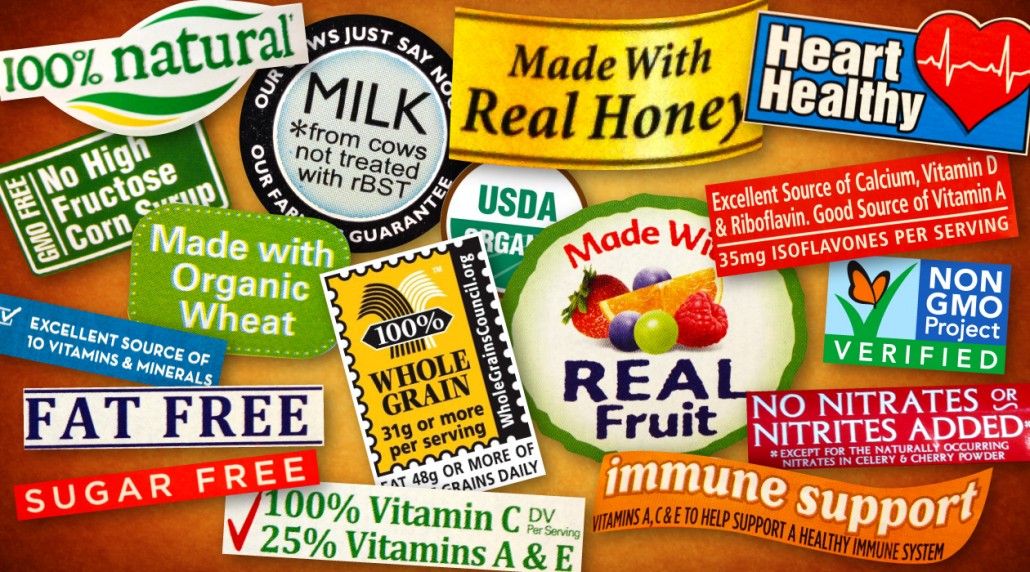Health claims on the front of packaged foods are designed to catch your attention and convince you that the product is healthy. So, what I did “for you” was break down the various terms and explain what they really mean.
Do you look for these stamps of approval on the products YOU buy? Well never be fooled again
- Light: Light products are processed to reduce either calories or fat, and some products are simply watered down. Check carefully to see if anything has been added instead, like sugar.
- Multigrain: Basically just means that there is more than one type of grain in the product. And unless they are termed “whole grain” with a whole grain ingredient first on the ingredient list, they are just refined junk.
- Natural: Natural is only regulated for meat so for products other than meat the term simply means that at some point the manufacturer had a natural source to work with like an orange to make orange juice.
- Organic: This label says very little about whether the product is healthy or not. For example, organic sugar is still sugar. Only certified organically grown products can be guaranteed to be organic.
- No added sugar: Some products are naturally high in sugar. The fact that they don’t have added sugar doesn’t mean they’re healthy. Unhealthy sugar substitutes may also have been added.
- Low-calorie: Low-calorie products have to contain 1/3 fewer calories than its original product.
- Low-fat: This label almost always means that the fat has been reduced at the cost of adding more sugar. Be very careful and read the ingredients listed on the back.
- Low-carb: Low carb product are becoming more and more popular, however, processed foods that are labeled low-carb are usually just processed junk foods, similar to processed low-fat junk foods.
- Made with whole grain: When you see this claim make sure to check the ingredients list. If it is not a whole grain ingredient like “sprouted grain or Wheat berry” in the first 3 ingredients, then the amount is negligible and it is junk.
- Fortified or enriched: This basically means that some nutrients have been added to the product. For example, synthetic fiber is often added to junk breads or vitamin D to milk.
- Gluten-free: Gluten-free does not equate to healthy. It simply means that the product doesn’t contain wheat, spelt, rye or barley. Many foods that are now gluten-free are highly processed and loaded with unhealthy fats and sugar.
- Fruit-flavored: Many processed foods have a name that refers to a natural flavor, such as strawberry yogurt. However, there may not actually be any fruit in the product at all, only chemicals designed to taste like fruit.
- Zero trans-fat: “Zero trans-fat” only means that the product contains “less than 0.5 grams of trans-fats per serving.” So if serving sizes are misleadingly small, the product can actually contain a lot of trans-fat while saying Zero trans-fat “boldly” on the front of the package.
So, as you can see, many of the words we link to healthy products are often used to mislead consumers into thinking that unhealthy processed food is actually good for you. Read the ingredients list and “DON’T BE FOOLED BY FALSE CLAIMS.”


